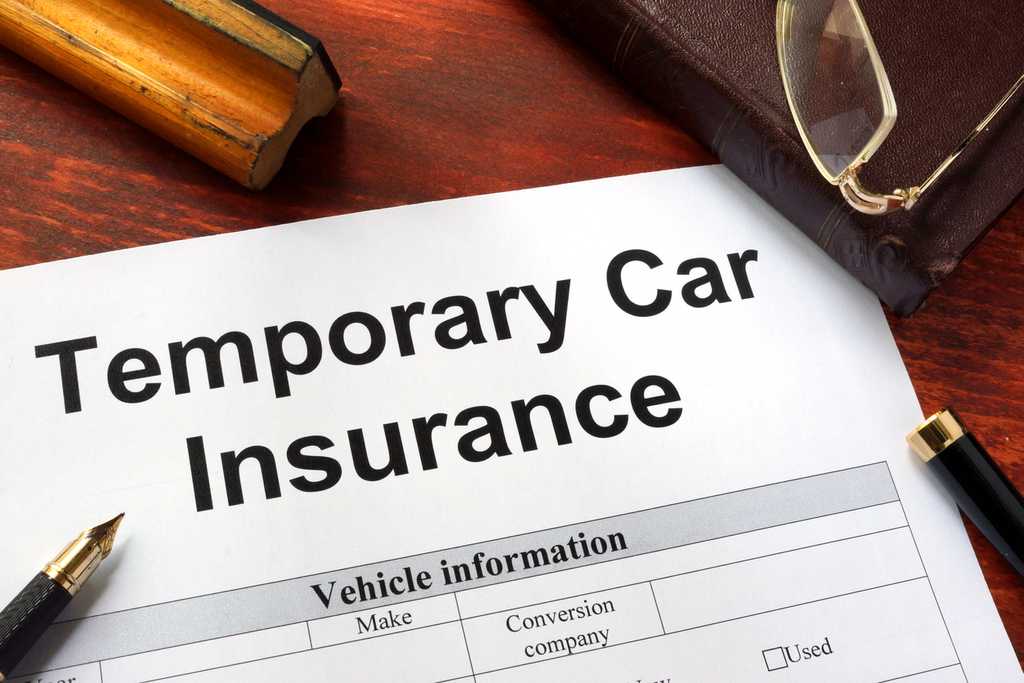Temporary car insurance is a type of car insurance that can make sense when you're in between permanent policies. This is true whether you just need 1-day car insurance, a 7-day policy, a 14-day policy or temporary auto coverage for 30 days.
Just keep in mind that true "short-term" auto insurance coverage isn't available in the U.S., and that you'll likely need to purchase a monthly plan from a traditional provider. When you pay on a monthly basis, you can basically pay-as-you-go with the option to drop coverage once you're ready.
If you have recently found you need short-term car insurance, you'll want to start the process by shopping around and comparing policies. Ideally, you'll find short-term car insurance coverage with the benefits you need for a price you can afford.
Key Takeaways:
- Temporary auto insurance can protect you from financial losses when you only need car insurance for a short amount of time.
- True "temporary car insurance" is not readily available in the United States, although you can pay for one month of coverage at a time with most auto insurance providers.
- Make sure to know how auto insurance works and the types of coverage you need before you shop around.
What's Covered by Temporary Car Insurance?
You're probably wondering what is included (and what isn't included) in a temporary car insurance policy. This depends largely on the temporary coverage you buy and what it says in the fine print.
Auto insurance typically focuses on basic liability coverage first, meaning you'll have some financial protection if you're in an accident that leads to property damage or injuries. However, many auto insurance policies stop short of offering collision coverage for repair costs or Personal Injury Protection (PIP) for medical bills.
If you want coverage for most situations that may arise, you'll want to select a broad auto insurance policy that includes comprehensive coverage. Make sure you learn about the types of car insurance coverage you need as you tailor your plan.
Can you get car insurance short-term?
Many consumers can qualify for short-term auto insurance coverage provided they can find a provider they like that doesn't require six months or one year of upfront payments. Fortunately, it's easy to find out if you are eligible to purchase temporary car insurance.
Once you know how much car insurance you need and how long you need a temporary policy in place, you can shop around and compare rates for auto insurance from the top companies. When you do, make sure you are comparing monthly premiums as well as coverage limits and the deductible you would need to pay to use your plan.
Situations someone might need short-term car insurance
There are quite a few scenarios where it could make sense to purchase short-term car insurance. For example, usage-based insurance coverage can make sense for people who drive very infrequently. If you have an antique car in long-term storage and you only drive it once per year, for example, investing in short-term 30-day coverage could make a lot of sense.
Another scenario where temporary car insurance makes sense is any time you find yourself in between policies due to divorce or major changes in your life. Students who come home from college infrequently could also look into temporary coverage that provides protection in the few instances they drive throughout the year.
With that being said, you may not need your own insurance policy if you're borrowing someone else's car for the short-term. Chances are good you're already covered by the car owner's policy, but you should inquire to make sure.
How to get car insurance for temporary situations
You should always have car insurance in place for vehicles you own, and that's true whether you drive every day or just a few times per year. Still, getting insurance can be tricky when you're not driving often and you want to avoid paying for coverage you cannot use.
You have a few options when it comes to finding affordable insurance for the long-term or car insurance for temporary situations. For example:
- You can purchase state minimum coverage. State minimum auto insurance coverage is typically very affordable, although you'll only have liability coverage with relatively low limits. If you rarely drive and you want bare minimum coverage as a result, maintaining a bare bones policy throughout the year can make sense.
- Buy a policy that allows for monthly payments. As we mentioned already, you can also purchase a traditional car insurance policy that allows customers to pay monthly premiums. That way, you're only paying for a policy one month at a time, and you can cancel once you're ready. The big auto insurance providers like Allstate, State Farm, and GEICO all offer this option, so pursuing this strategy should be a breeze.
- Consider usage-based coverage. Usage-based car insurance lets you pay for insurance only when you drive. For example, companies like Root offer usage-based coverage that tailors premiums based on how you drive. Other major insurers like Nationwide, American Family, and GEICO offer usage-based insurance discount programs.
How to save money on temporary car insurance
Temporary car insurance rates are based on factors like your age, your driving history, your gender, and your credit score. However, you'll also pay a premium in order to make monthly payments.
If you want to pay less for the best auto insurance coverage money can buy, you should consider investing in a long-term policy and paying for at least six months of car insurance upfront. This way, you'll be eligible for any full payment discounts that may be available.
Other ways to save on temporary car insurance can depend on your insurance company, They may include:
- Choosing a higher deductible for your coverage
- Buying state minimum coverage
- Opting for paperless billing
- Having anti-lock brakes
- Installing an anti-theft device
- Bundling other types of insurance like homeowners insurance or renters insurance
- Having multiple auto insurance policies
- Having a good driving record
- Improving your credit score
- Qualifying for a good student discount
- Active duty military or veteran status
- Taking a safe driving course
- Being a federal employee
While the auto insurance discounts listed here can help you save money on auto insurance, the best way to save involves shopping around with at least three or four insurers to find the most affordable coverage for your needs. Fortunately, shopping for car insurance is easy to do online, and you can often compare rates across multiple providers in one place.

